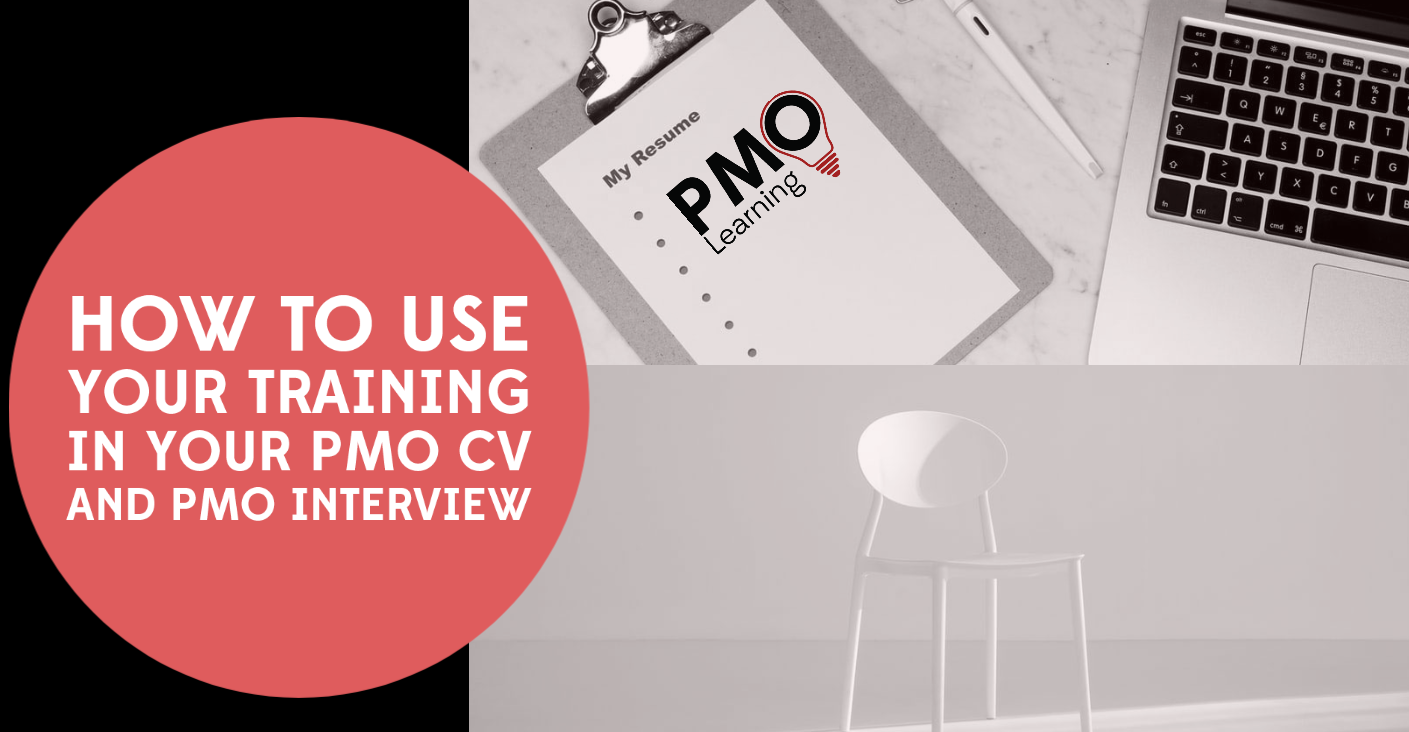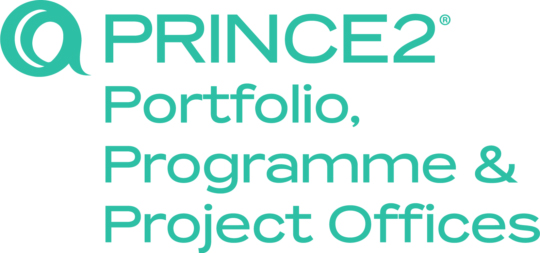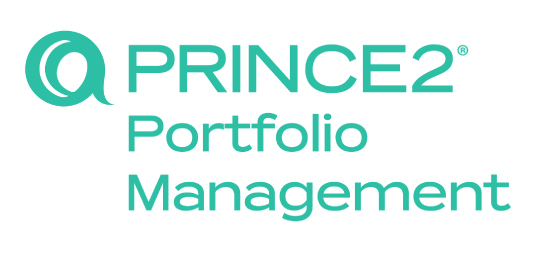For many PMO practitioners right now there has been a need to make sure their training is up to date and they have something to put on their CV.
That might sound harsh but when the employment market is in flux and jobs are under threat it tends to concentrate the mind a bit.
In the last article, we looked at getting prepared for a PMO interview, in this article we take another look at the interview from another angle.
Let’s say you’ve just completed some training, you’ve passed the exam and you can say you’re now qualified in P3O® or PMO Essentials.
Is that it?
Just a line on a CV?
There are two ways we can now utilise that training in our job search.
We’ll look at the PMO CV first before we get into the interview.
Using Your Training in Your PMO CV
Throughout your training, you have been picking up new knowledge and reaffirming things you already knew. You will have learnt about different themes and concepts – perhaps picked up different ways to describe these and even name them.
Now is the time to use those new insights in your CV to describe the role you perform and the skills you use better.
Let’s take a PMO Analyst as an example, let’s say they’ve just done the P3O Foundation.
In that course you learn about the different types of PMO, instead of just introducing their role on a CV as a “PMO Analyst” and then diving into the roles and responsibilities, they would introduce the type of PMO they work in.
Context is king when it comes to PMO recruitment. We know there are many different types of PMO and it’s up to you to make sure the hirer knows what type you’re working in.
In the P3O® Foundation course is the infamous Appendix F. Now this really is a brilliant way for you to ensure you’re covering off the functions and services you have experiences in on your CV.
Not only is it a good way to check that you’ve not missed anything – for example, you’ll be doing some elements of services that you’ve not realised you actually do but haven’t even covered on the CV. It’s also a great way to check your language or terminology, for example, if you’re covering off risk management in the CV, P3O does cover the expected services, tasks and activities associated with that.
 The bottom line is when you’ve completed your training you can’t help but revisit your CV and think about how you can change the way you write about what you’ve done – by articulating your role according to the best practices you’ve just learnt about.
The bottom line is when you’ve completed your training you can’t help but revisit your CV and think about how you can change the way you write about what you’ve done – by articulating your role according to the best practices you’ve just learnt about.
And of course, you’ll be able to add another string to your bow in the Qualifications section of your CV – and in your personal summary.
If you’re interested in developing a better PMO CV that really does get results, take a look at our short course on CV Development for PMO Professionals
Using Your Training in Your PMO Interview
You’ve done your training and you now have to think about how you incorporate that into the way you talk about your experiences and skills.
Training changes us, that’s the whole point of it I guess, and if the course was good for you, it should have changed the way you think about what you do.
In an interview where the interviewer is asking about your experiences we want to make sure we articulate ourselves well to be fully understood; we want to be able to talk the same language; we want to give a good account of ourselves and not be kicking ourselves when we leave the room that something important was missed. We also want to make sure what we talk about comes with some authority, that we’re not just talking about something we’ve managed to do based on sheer luck and bravado. It has to have some substance.
We want to talk about our experiences and show how our approaches to work are based on best practices. For example, the role you are being interviewed for includes overseeing the benefits management process. As an interviewer, I would like to hear about what your approach is – what the best practice is and how you have adapted that to fit the organisation and role you were in.
As a hirer I’m hearing that you’re knowledgeable about your profession; I’m hearing that you’re keeping up to date with best practices and I’m hearing about your adaptability to use best practice in a way that fits the context – that’s a pretty impressive candidate for the job.
In interviews, you can also receive questions where you don’t have any or much demonstrable experience. It’s not a deal-breaker if you don’t, after all, no-one is ever 100% perfect for a job – in fact, what would be the point in going for the job if there weren’t any new challenges for you?
We can use our training knowledge to demonstrate that we understand how something should or could work and that whilst you don’t have the experience today, it’s a case of using your base knowledge to get you started to pick up the ropes from others on the job.
 It’s the same principle if we are asked a question around a scenario. Sometimes those questions are deliberately asked because you don’t have the direct experience. They are sometimes asked to see how you respond or how you work through a problem or challenge. Again, in this situation, you have your training to fall back on. For example, you’re asked to talk about how you would plan a planning workshop. You may never have done a workshop before however, you know from your P3O training that there is a basic approach you could utilise – even better, you’ve been on a Facilitation Fundamentals for PMO course.
It’s the same principle if we are asked a question around a scenario. Sometimes those questions are deliberately asked because you don’t have the direct experience. They are sometimes asked to see how you respond or how you work through a problem or challenge. Again, in this situation, you have your training to fall back on. For example, you’re asked to talk about how you would plan a planning workshop. You may never have done a workshop before however, you know from your P3O training that there is a basic approach you could utilise – even better, you’ve been on a Facilitation Fundamentals for PMO course.
When we opt for training and development, we often think about how this will help us in our day-to-day job – hopefully, the article has shown you how it can also help you find the next job.
The P3O® courses on this page are offered by PMO Learning. P3O® is a [registered] trade mark of AXELOS Limited. P3O® is a registered trade mark of AXELOS Limited, used under permission of AXELOS Limited. The Swirl logo™ is a trade mark of AXELOS Limited, used under permission of AXELOS Limited. All rights reserved.
Enjoying Our Blog?
Sign up and receive all our articles (we’ll send you an update once a week!) plus special offers and events:







